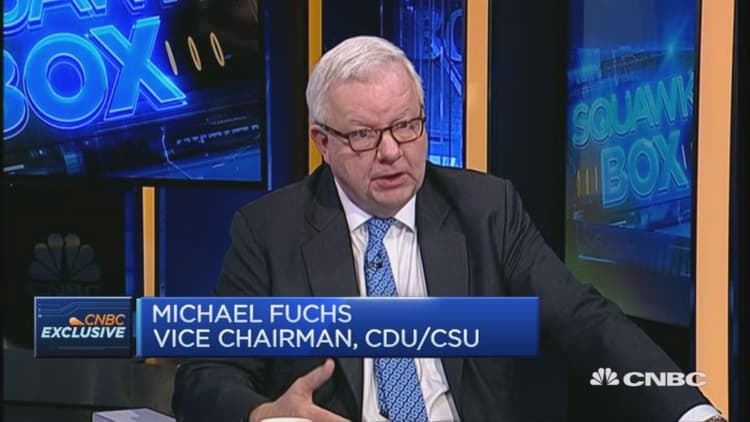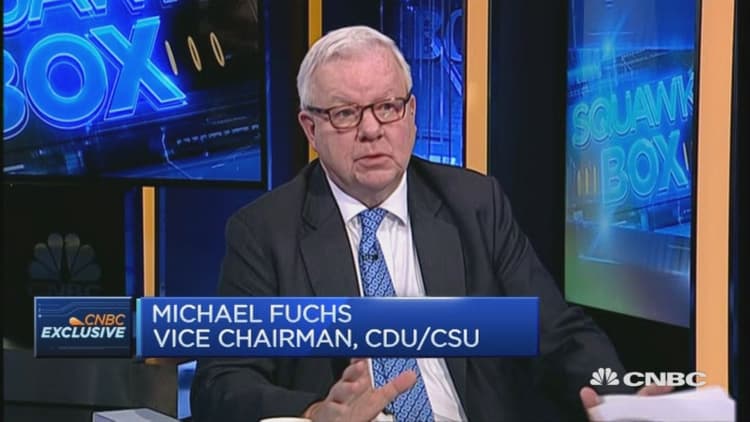

Germany is seeking a longer-term solution to the migrant crisis, a key ally of Chancellor Angela Merkel told CNBC, as European Union (EU) leaders came to a tentative deal with Turkey to stem the flow of people into Europe.
Michael Fuchs, vice chairman of Merkel's center-right party, the Christian Democratic Union, told CNBC's "Squawk Box" that a solution to the crisis needed to be found at the source of the human influx.
"We need to have a solution which is including Syria and also Libya because both countries are still filled with refugees which are trying to enter either via Turkey into Europe or directly from Libya into Italy," Fuchs said.
But he admitted that working with migrants' home countries could be difficult.
"One of the problems is, for instance in Libya, to whom to talk. There are three different groups fighting each other: who to talk to? They don't have a foreign minister to talk to," Fuchs said.
The comments came after the European Union and Turkey agreed on Monday night local time the outlines of a deal designed to stem the tide of migrants that has flowed into Europe over the past six months.
Turkey agreed to take back migrants who crossed into Europe from its soil. In return, the EU may increase the 3 billion euros ($3.31 billion) of aid already set for Turkey to deal with the migrant crisis; it could also ease visa requirements for Turks traveling to Europe, as well as potentially expedite Turkey's talks to join the EU.
Speaking in Hong Kong, where he was set to deliver a speech at the Asia Society, Fuchs underlined the need for a speedy resolution to the issue.
"We have over a million refugees already in Germany, which is quite a lot," he said. Those figures are likely related to the number of asylum seekers in the country. "We have to find solutions because it cannot be double or three times more, because then it's coming to a difficult situation."
The U.N. has estimated that more than a million migrants arrived in Europe via sea in 2015. Others have crossed into Europe overland from Turkey, which itself is estimated to be hosting around two million Syrian refugees. The U.N. also estimates more than 131,000 reached Europe through the Mediterranean so far this year. Southern European countries, Greece in particular, are struggling with the flow of people.
Many are fleeing civil war in Syria, although many are coming from impoverished countries in Africa and the Middle East and are seen as economic migrants rather than asylum seekers.
The flow of migrants has eaten away at European solidarity, creating deep tensions within the region and between countries. Austria, the Western Balkans and Eastern Europe, which are conduits for migrants heading to richer northern Europe, have refused migrants entry. Some have closed borders and opposed the EU's plans to resettle migrants throughout the bloc using a quota system.
Germany, meanwhile, has been fiercely criticized by other EU nations for opening its borders for a period, which some EU leaders said encouraged additional migration.
But so far, Germany is sticking with its acceptance of refugees.
"The humanitarian way is still the best one," Fuchs said. "Germany is a big country and we are a rich country."
—Holly Ellyatt contributed to this article.
Follow CNBC International on Twitter and Facebook.
—By CNBC.Com's Leslie Shaffer; Follow her on Twitter @LeslieShaffer1




